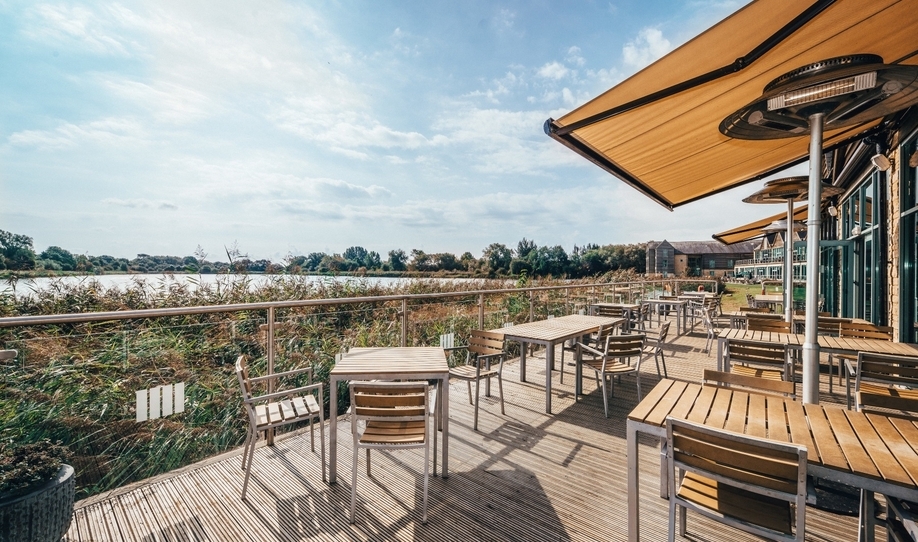Academic Venues for Hire
Discover some of our unique Academic Venues for Hire
- Best possible rates from longstanding relationships
- Quick response time (under 1 hour during work hours)
- Negotiation on your behalf?
Looking for a unique environment for your next corporate event?
Academic venues offer great value, character, and purpose-built event spaces – from modern halls to historic buildings.
Read more- You’ll have a dedicated team working on your behalf
- 35+ years’ combined experience in finding the best academic venues
- Schools, Colleges and Universities
- Libraries, Museums and Historical Organisations
- Cultural Centres, Art Galleries and Exhibition Centres
- Learned Societies and Professional Bodies
- Music Venues and Concert Halls
- Science Parks and Innovation Hubs
Contact Your Personal Venue Finder Today
Carrie Larwood, our managing director, has been helping businesses organise events in London, throughout the UK and across Europe for over 35 years. Get in touch with Carrie today for all of your events needs.
Find the Best Academic Venues for Hire
Introduction to Academic Event Venues
Hosting a successful academic event requires careful planning, and one of the most crucial decisions is selecting the right venue. The venue sets the tone and atmosphere for the entire event, reflecting the intellectual and scholarly nature of your gathering. Whether you’re planning a conference, a symposium, or a guest lecture series, choosing a suitable academic venue can significantly impact the event’s success and create an environment conducive to learning and discourse.
The Benefits of Using an Academic Venue Finder
Utilizing an academic venue finder service can streamline the process of finding the ideal location for your event. These services provide access to a curated database of academic venues, allowing you to browse through various options based on your specific requirements, such as capacity, location, amenities, and technology infrastructure. By leveraging an academic venue finder, you can save time and effort in researching potential venues, ensuring a more efficient and streamlined planning process.
Academic Venue Types and Considerations
When selecting an academic venue for hire, it’s essential to consider the type of event you’re hosting and the specific requirements it entails. Here are some common academic venue types and factors to consider:
University or College Campuses
Educational institutions often have auditoriums, lecture halls, and conference facilities available for academic events, offering a scholarly environment and access to on-campus resources.
Research Centers and Think Tanks
These venues provide a focused and intellectual setting for hosting academic conferences, seminars, or panel discussions on specific research topics or areas of study.
Libraries and Archives
Historical libraries and archives can offer a unique and scholarly backdrop for academic events, particularly those related to literature, history, or research.
Museums and Cultural Institutions
Museums, galleries, or other cultural institutions can provide an enriching and educational setting for academic events, allowing attendees to explore exhibits and collections related to the event’s theme.
Conference Centers and Convention Venues
While not exclusively academic, these venues often have the necessary infrastructure and amenities to host large-scale academic conferences or symposiums.
Considerations for selecting an academic venue may include its technology infrastructure (Wi-Fi, audio-visual equipment, and presentation capabilities), accessibility, parking availability, catering options, and overall scholarly ambiance.
Event Planning and Logistics
Once you’ve selected your desired academic venue, it’s essential to plan and coordinate the logistics of your event. This may include:
Technology and Connectivity
Ensure the venue has adequate technology infrastructure, such as reliable Wi-Fi, audio-visual equipment, and presentation capabilities, to support your event’s needs for lectures, presentations, and academic discussions.
Vendor Coordination
Coordinate with vendors such as caterers, audio-visual technicians, and event staff to ensure they understand and adhere to the venue’s policies and requirements.
Attendee Management
Plan for attendee registration, seating arrangements, and any special accommodations that may be required, such as accessibility or dietary restrictions.
Academic Resources and Materials
Discuss the availability of academic resources or materials at the venue, such as library access or study materials related to the event’s topic.
Vendor Selection and Management
Choosing the right vendors can significantly impact the overall success of your academic event. Consider the following when selecting vendors:
Catering
Research caterers with experience in academic events and those who can accommodate various dietary needs and preferences.
Audio-Visual and Technology Support
Hire experienced audio-visual technicians or technology support teams to ensure seamless presentation delivery and troubleshooting during lectures and discussions.
Event Staff and Personnel
Work with professional event staff or personnel to ensure efficient event coordination, registration, and attendee management.
Academic Partnerships and Collaborations
Explore opportunities to partner with academic institutions, research organizations, or subject matter experts to enhance the content and credibility of your event.
Budget and Cost Considerations
Establishing a realistic budget is crucial when planning an academic event. Consider the following factors:
Venue Rental Fees
Research and compare the rental fees for various academic venues, taking into account any additional charges for services or amenities.
Vendor Costs
Factor in the costs for catering, audio-visual support, event staff, and any other vendor services you require.
Speaker Fees
If you plan to invite guest speakers, researchers, or subject matter experts, budget for their fees, travel expenses, and accommodations.
Legal and Compliance Requirements
Depending on the size and nature of your academic event, you may need to consider legal and compliance requirements, such as:
Permits and Licenses
Research any necessary permits or licenses required for hosting academic events at the venue, such as event permits or speaker visas (for international guests).
Insurance and Liability
Consider obtaining event liability insurance to protect your organization and the venue in case of accidents or damages.
Intellectual Property and Copyright
Ensure compliance with intellectual property and copyright regulations if you plan to distribute academic materials or publications during the event.
Promotion and Marketing
Promoting your academic event can help ensure a successful turnout and create interest among your target audience. Consider the following strategies:
Academic Mailing Lists and Publications
Utilise mailing lists and publications within academic circles, such as university newsletters or research journals, to reach out to potential attendees and promote your event.
Social Media and Online Promotion
Leverage social media platforms and online event listings to showcase your event’s details, speakers, and highlights.
Academic Partnerships and Collaborations
Partner with academic institutions, research organizations, or subject matter experts to cross-promote and reach a broader audience within your field of study.
Day-of Coordination and Event Management
On the day of your academic event, it’s essential to have a solid coordination plan in place to ensure a smooth and seamless experience. Consider the following:
Venue Setup and Academic Resources
Arrive early to oversee the setup process and ensure that the venue is properly equipped with any necessary academic resources or materials.
Vendor Coordination
Work closely with your vendors to ensure they adhere to the venue’s policies and your event’s timeline.
Attendee Management
Assign designated staff or volunteers to assist with attendee registration, seating arrangements, and any other attendee-related tasks.
Post-Event Follow-up and Feedback
After the event, it’s important to follow up with attendees, speakers, and vendors to ensure a proper wrap-up and gather valuable feedback. Consider the following:
Attendee Follow-up
Send post-event communications, such as thank-you notes or surveys, to gather feedback and insights from attendees.
Speaker and Presenter Feedback
Solicit feedback from guest speakers, researchers, or presenters to understand their experience and identify areas for improvement.
Vendor Evaluations
Evaluate the performance of your vendors and provide feedback for future improvement.
Event Data and Analytics
Analyse event data and metrics to measure the success of your event and identify areas for improvement for future academic events.
Academic Venue Booking Checklist
- Determine the type of academic event and specific requirements
- Research and compare potential academic venues
- Consider venue amenities, capacity, location, technology infrastructure, and scholarly ambiance
- Check availability and book the desired academic venue
- Review and understand the venue’s policies, contracts, and compliance requirements
- Coordinate with vendors and communicate venue requirements
- Obtain necessary permits, licenses, and event insurance
- Promote the event through academic mailing lists, social media, and partnerships
- Develop a day-of coordination plan with vendor coordination and attendee management
- Conduct post-event follow-up, vendor evaluations, and event data analysis
By following these steps and considerations, you


